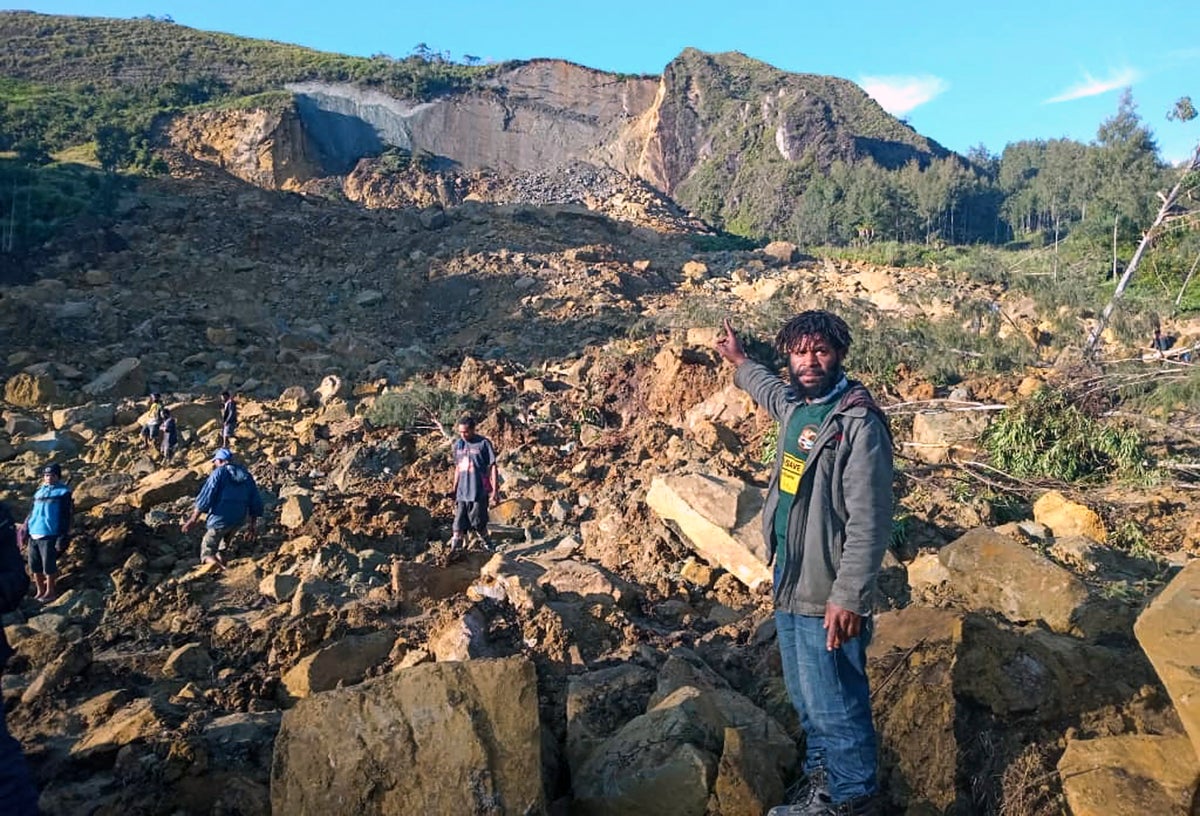
Search and rescue teams are struggling to access a mountainside in Papua New Guinea where more than 2,000 people are feared dead after a massive landslide.
Luseta Laso Mana, acting director of the South Pacific island nation’s National Disaster Centre, said the landslide “buried more than 2.000 people alive” and caused “major destruction” at Yambali village in the Enga province, in a letter sent to the United Nations resident coordinator on Sunday.
Ongoing rain, flowing water and unstable ground are making it extremely difficult for rescue officials to search for survivors in the mud.
The landslide came crashing through Yambali village in the country’s north at around 3am on Friday, when most villagers were asleep in their homes.
Locals have reported hearing screams coming from beneath the earth after more than 150 houses were buried under debris almost two storeys high.
“I have 18 of my family members being buried under the debris and soil that I am standing on, and a lot more family members in the village I cannot count,” Evit Kambu told Reuters. “But I cannot retrieve the bodies so I am standing here helplessly.”
Serhan Aktoprak, the chief of the UN migration agency mission in Papua New Guinea, said hopes of finding survivors were fading more than three days after the landslide.
“At this point, people I think are realising that the chances are very slim, that anyone can basically be taken out alive,” he said.
Residents are still using their bare hands, spades and sticks to excavate the debris and reach survivors as heavy equipment and other aid has been slow to reach the remote location.
The village has a patchy mobile phone reception and limited access to electricity, making contact with other parts of Papua New Guinea difficult.
Local tribal warfare has also impacted the movement of humanitarian aid workers in the area, who have to be escorted to the landslide-hit region by soldiers and then taken back to the provincial capital, which is around 60km away, at night.
The first excavator reached the affected site late on Sunday, a UN official said, adding that six bodies have been recovered so far.
“It’s not like everyone is in the same house at the same time, so you have fathers who don’t know where their children are, mothers who don’t know where husbands are, it’s chaotic,” said Matthew Hewitt Tapus, a pastor living in Port Moresby whose home village is 20km away from the landslide.
The UN has said there is a risk that soil and debris could shift again and more than 250 homes have been abandoned as officials encourage people in the wider region to evacuate.
Some 1,250 people have been displaced so far as a result of the landslides.
The latest UN death toll in the incident still stands at more than 670 people. The difference in the toll may be due to the remote site and the difficulty getting an accurate population estimate. Papua New Guinea’s last credible census was in 2000, with many people living in isolated mountainous villages.
“We are not able to dispute what the government suggests but we are not able to comment on it,” added Mr Aktoprak.







